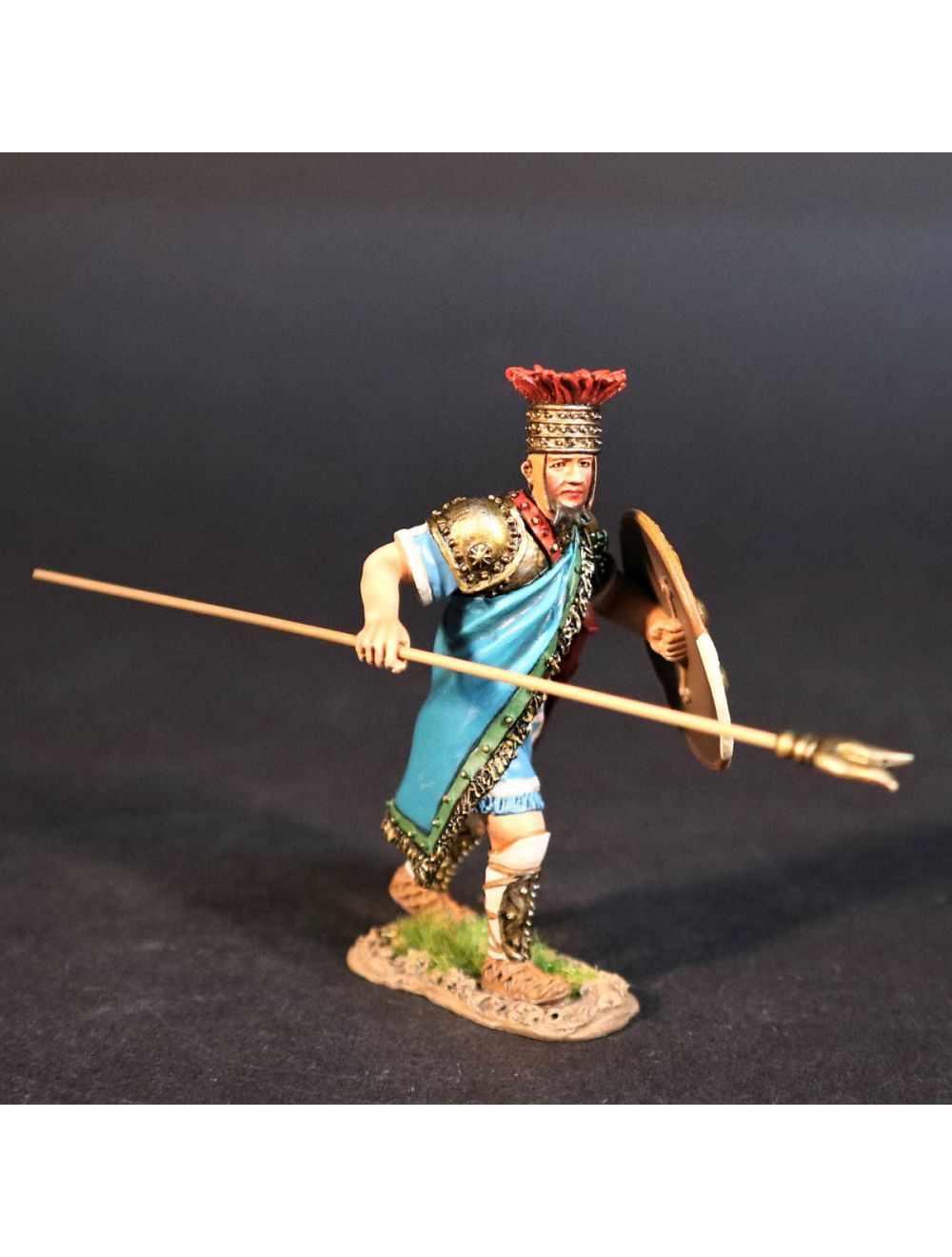JJ-TWT-06 - Glaucus
Glaucus, the son of Hippolochos, accompanied Sarpedon to Troy along with his troops from Xanthos. Himself a prominent warrior, Glaucus meets the Greek hero Diomedes on the battlefield, who is leading the Greek forces with the help of the goddess Athena. Glaucus and Diomedes exchange words and upon learning about each other's ancestry, the two warriors decide to not fight each other despite being on opposing sides. Coincidentally both their grandfathers shared a bond of friendship in the past. They continue the tradition of friendship by giving each other their own armour as a gift and part ways as friends.
Traditionally, the Trojan War arose from a sequence of events beginning with a quarrel between the goddesses Hera, Athena and Aphrodite. Eris the goddess of discord, was not invited to the wedding of Peleus and Thetis, and so arrived bearing a gift. A golden apple, inscribed “for the fairest”.
Each of the goddesses claimed to be the “fairest”, and the rightful owner of the apple. They submitted the judgement to a shepherd they encountered tending his flock. Each of the goddesses promised the young man a boon in return for his favour. Power, wisdom, or love. The youth, in fact Paris, a Trojan prince who had been raised in the countryside, chose love, and awarded the apple to Aphrodite.
As his reward, Aphrodite caused Helen, the Queen of Sparta, and the most beautiful of all women, to fall in love with Paris.
The judgement of Paris earned him the ire of both Hera and Athena, and when Helen left her husband, Menelaus, the Spartan king, for Paris of Troy, Menelaus called upon all the kings and princes of Greece to wage war upon Troy.
Menelaus’ brother Agamemnon King of Mycenae, led an expedition of Achaean troops to Troy and besieged the city for ten years because of Paris’ insult. After the death of many heroes, including the Achaeans, Achilles, Ajax and the Trojans Hector and Paris, the city fell to the ruse of the Trojan Horse.
The Achaeans slaughtered the Trojans, except for some of the women and children whom they kept or sold as slaves. They desecrated the temples, thus earning the wrath of the gods. Few of the Achaeans returned safely to their homes, and many founded colonies in distant shores. The Romans later traced their origin to Aeneas, Aphrodite’s son and one of the Trojans, who was said to have led the surviving Trojans to modern day Italy.
Glaucus
Glaucus, the son of Hippolochos, accompanied Sarpedon to Troy along with his troops from Xanthos. Himself a prominent warrior, Glaucus meets the Greek hero Diomedes on the battlefield, who is leading the Greek forces with the help of the goddess Athena. Glaucus and Diomedes exchange words and upon learning about each other's ancestry, the two warriors decide to not fight each other despite being on opposing sides. Coincidentally both their grandfathers shared a bond of friendship in the past. They continue the tradition of friendship by giving each other their own armour as a gift and part ways as friends.
After the death of Sarpedon, Glaucus, filled with anguish and sorrow over his fallen commander and cousin, reminds Hector of his duty to the Trojan allies. Fierce fighting breaks out around the body of Sarpedon as both sides aim to claim the body of the Lycian commander. Just as Trojans take the armour from his body, Apollo appears, accompanied by Hypnos and Thanatos, to cleanse the body and ease it back to Lycia. Glaucus follows in the steps of Sarpedon by leading the Lycian troops after his death
Scale: 1/30
Material: Pewter alloy and synthetic fibers
Released Date: August 2022
| Years | Bronze Age |
|---|---|
| Celebrities | All Celebrities, Militaries |
| Gender | Men |
| Role | Officers & Leaders |

 Français
Français

